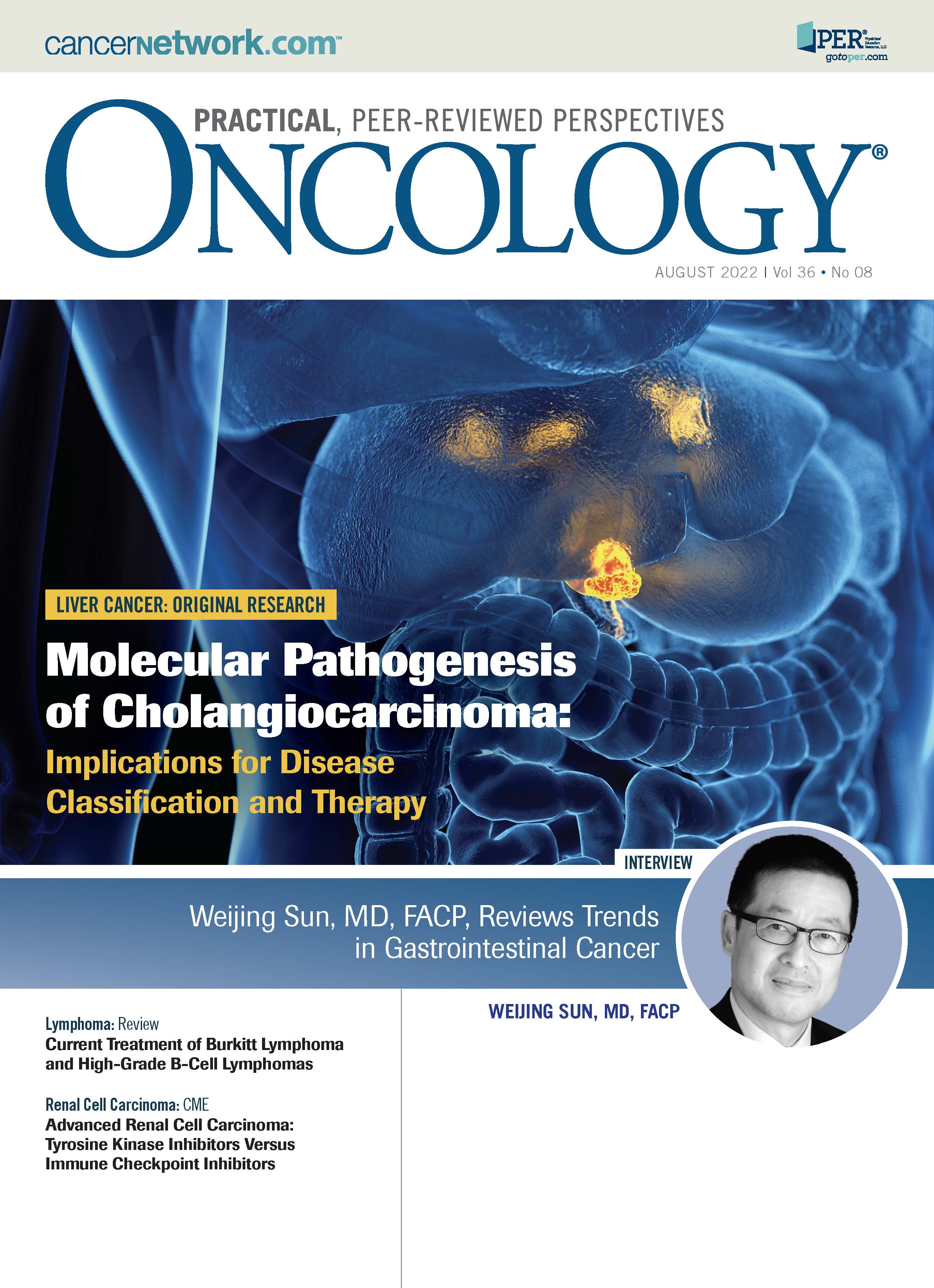Weijing Sun, MD, FACP, Reviews Trends in Gastrointestinal Cancer
“...we don’t focus on survivorship enough. It’s important to understand the other factors involved in surviving besides just a treatment.”
Current treatment options in gastrointestinal cancer continue to evolve, with longer survival times leading investigators to focus more and more on patients’ quality of life and survivorship care.
Weijing Sun, MD, FACP, discussed new treatments, trends in the space, diversity in clinical trials, and how an increased focus on survivorship is changing the needs of patients and investigators in an interview with ONCOLOGY®.
Q:Can you give a brief overview of updates in the gastrointestinal space?
Sun: Cholangiocarcinoma [had seen a lot of progress recently, with treatments for] molecular markers or mutation drivers, such as FGFR and IDH1 mutations becoming standardized to a certain level after the FDA approved some drugs. Most studies show the advantage of those [precision] approaches, so it’s an important [characteristic] we’re looking for. There’s not a huge [amount of data] with these studies, but that information is important because each mutation allows for a personalized medicine [approach]. For gastric and esophageal cancer, over the past 2 or 3 years we confirmed that immune checkpoint inhibitors are playing a major role in metastatic disease.
Q:What trends have you observed?
Sun: One would be quality of life vs treatment [outcomes]. In some diseases like stomach disease or gastric cancer, [guidelines] are updated all the time. We focus on the overall survival and the response rate. Nowadays, we have data showing quality of life makes people survive longer. I’m glad to see [survival increasing in] many of these studies, through all different kinds of support. This type of research is important for the future because the longer the patient is surviving, the quality of life [increasingly becomes a concern]. I see it as something to focus on.
An area is in gastrointestinal cancer we don’t talk about much is diversity, which means [we end up with] underrepresented or underserved populations. We want to make a difference; we see more research heading in that direction. With this information, we can deliver better care, we can deliver more focus for those underserved populations, and their outcomes can catch up with [those in the overall populations].
Q:What are some unmet needs in the gastrointestinal cancer field?
Sun: Pancreatic cancer is a [lesser investigated malignancy than other] diseases. We still don’t know everything; we are far away from [uncovering it all] compared with other diseases. We need to put in more effort, especially regarding tumor biology and the tumor microenvironment because this can tell us the mutations that are important and play an important role.
The other thing is we need a more comprehensive understanding of the diseases, even in survivorship. It’s important because certain patients are living [longer lives], and we don’t focus on survivorship enough. It’s important to understand the other factors involved in surviving besides just a treatment.
Reference
Sun W, Saeed A, Taiseer M, et al. A phase II study of perioperative mFOLFOX plus pembrolizumab combination in patients with potentially resectable adenocarcinoma of the esophageal, gastroesophageal junction (GEJ) and stomach. J Clin Oncol. 2022;40(suppl 16):4047. doi:10.1200/JCO.2022.40.16_suppl.4047
